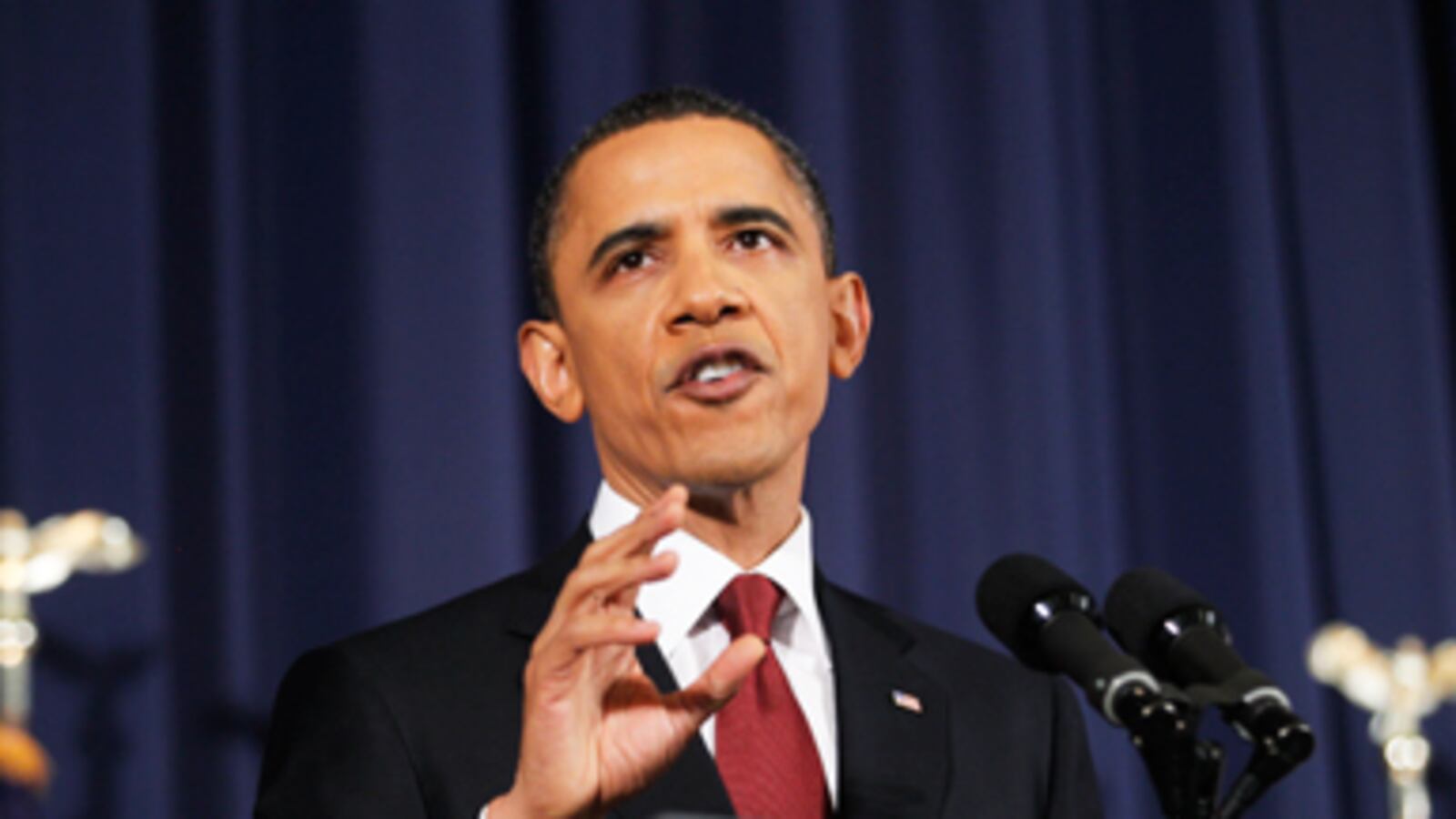The president’s remarks explained a lot, but they didn’t give his critics what they wanted—which is all for the best. Plus, more Obama speech reaction.
President Obama’s National Defense University speech was designed to disappoint those who wanted a specific timetable, complete with a stated “end-game,” for American involvement in Libya, or a “doctrine” that would set some clear precedent for future interventions. The essence of the speech was to suggest that we are already at a stage of the conflict when it is no longer appropriate to talk of a specifically U.S. military action—much less a war—and that there is no overarching doctrine governing our policy. We are simply acting in response to a case-by-case calculus of values, interests, costs, risks, and opportunities.

On this latter point, Obama was reasonably clear:
It is true that America cannot use our military wherever repression occurs. And given the costs and risks of intervention, we must always measure our interests against the need for action…. In this particular country—Libya; at this particular moment, we were faced with the prospect of violence on a horrific scale. We had a unique ability to stop that violence: an international mandate for action, a broad coalition prepared to join us, the support of Arab countries, and a plea for help from the Libyan people themselves. We also had the ability to stop Gaddafi's forces in their tracks without putting American troops on the ground.
Obama’s speech will not create a swell of public support, if only because at least a third of the country reflexively opposes him on every front, while others will dislike any statement that doesn’t promise immediate victory or total disengagement.
This explanation has the added benefit of answering a lot of the questions about how and when the intervention occurred. Why didn’t we go in earlier, when Gaddafi’s position was weaker? Because our interests didn’t demand it, the urgency of the situation wasn’t as clear, and the costs would have been vastly higher. And now, the limited structure of the intervention and its highly contingent rules of engagement make it illogical for the U.S. to establish regime change as a military objective, as most Republicans are demanding.
• More Daily Beast writers on Obama’s Libya speech
Obama’s speech will not create a swell of public support, if only because at least a third of the country reflexively opposes him on every front, while others will dislike any statement that doesn’t promise immediate victory or total disengagement. In the long run, though, if things turn out non-disastrously, the lack of clarity that his opponents and many pundits are complaining about will be forgotten by Americans as quickly as Libya itself.
Ed Kilgore is managing editor of the Democratic Strategist.






